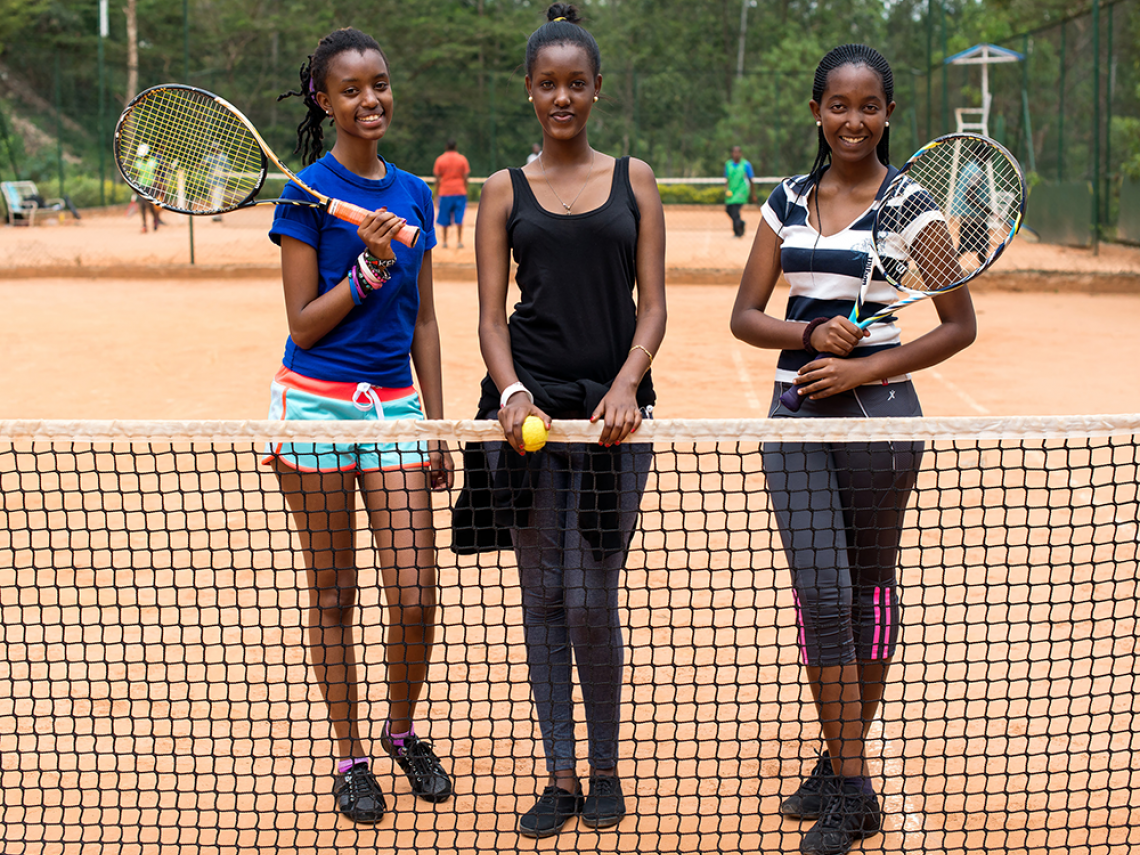Thirty Years After Genocide, Scenes of Daily Life in Rwanda Show a Country Moving Forward
Rwanda Reseen 100 Days is a nationwide photography exhibition about the people of Rwanda today
When North Carolina photographer Bill Bamberger first traveled to Rwanda in 2013, it was to mark the looming 20th anniversary of the genocide the East African country experienced in 1994.
“But as I looked through my lens while traveling across all five provinces, I did not see perpetrators or survivors,” Bamberger said. “Instead, I found my images evoking the collective resilience of the Rwandan people, their generosity and compassion as they forged a new national identity.”
Bamberger, who has taught at Duke University for the past decade, has continued to visit and photograph Rwandan life since that first trip. Now, with the 100 days from April 7 through July 19 marking the 30th anniversary of the genocide against the Tutsi ethnic group, Bamberger and Rwandan photographer Jacques Nkinzingabo are installing 100 large-scale photographs across Rwanda’s five provinces depicting a country that has moved on.
The exhibition tells the story of daily life in the capital city of Kigali and in small villages around the country. Rwanda Reseen is a collaboration between Bamberger and Nkinzingabo, who has been photographing his native country over the last decade.
The photographs are sited in local schools, neighborhood cafes, community libraries, art galleries, outdoor markets and other public and private spaces. Many of the images are printed on waterproof fabric and displayed on storefronts and the sides of homes in the neighborhoods where they were taken.
Focusing on the people and places of daily life, Nkinzingabo and Bamberger worked through understatement rather than dramatization. Both artists thought it was time for Rwandans to be seen in the context of modern life, free from the global characterization as Hutu or Tutsi, perpetrator or survivor.
Nkinzingabo wants the opportunities and beauty of his country to be seen alongside its challenges. “I wanted to capture the way we live, feel, dance, speak, look, walk, dress and do our hair,” he said. “I wanted to bring out the culture and traditions of Rwanda people so as to change the way the world views our country. We’re tired of hearing about Rwanda only in connection to genocide and reconciliation. The Rwanda of today deserves to be known.”
Bamberger brought undergraduates to Rwanda for two summers through the DukeEngage program. As interns, the students used their skills in videography, photography, writing and websites to promote the work of local organizations.
Robin Wang ’19 taught photography and filmmaking workshops to high school students in the small city of Rwamagana while he made documentaries on education and female empowerment to help the school raise funds. He went on to become an accomplished filmmaker in Los Angeles.
Each printed image includes a QR code linking viewers to an online gallery and the project website. The website will be updated regularly with photos and videos documenting the neighborhood installations and community reactions.
On July 19, the Kigali Center for Photography will host a culminating event with a comprehensive selection from the nationwide exhibition. Families and individuals pictured in the photos are invited as special guests. The exhibition photographs will be gifted to the individuals and communities pictured.
About Bill Bamberger
Bill Bamberger’s photographs explore cultural and social issues of our time: factory closings and the loss of jobs, the need for affordable housing, adolescents coming of age in an inner-city high school. His first book, “Closing: The Life and Death of an American Factory,” won the Mayflower Cup for nonfiction and was a semifinalist for the Robert F. Kennedy Book Award. He has had one-person exhibitions at the Yale University Art Gallery, Smithsonian Institution’s National Museum of American History, North Carolina Museum of Art, Nasher Museum of Art and the National Building Museum. Bamberger was a Morehead-Cain Scholar at the University of North Carolina at Chapel Hill and currently teaches at Duke University’s Center for Documentary Studies.
About Jacques Nkinzingabo
Jacques Nkinzingabo is a DJ, music producer and self-taught photographer born and based in Kigali, Rwanda. He established the Kigali Center for Photography, both a gallery and a training space to enable exchange, reflection, meeting, listening and the practice and development of new work. His work focuses on cultural diversity, migration, memories and identity issues. Nkinzingabo has been exhibited worldwide. He is currently showing his long-term project “The Country in Progress” with WordPress Foundation at the Afrika Museum Colonial in the Netherlands. Nkinzingabo co-founded Learning for Change. Today, he continues to teach photography classes in schools and communities across Rwanda.









